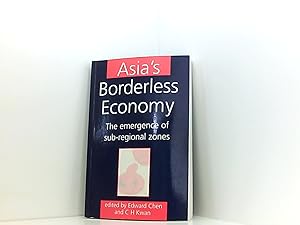In 1989, Professor Edward Chen made famous the 'flying geese' analogy to explain the linked nature of the east Asian economies. Now, he and Dr C H Kwan focus on the burgeoning of economic sub-regionalism in a book which is perhaps the first attempt at a comprehensive analysis of the subject. The flying geese have evolved into a more dynamic formation, chasing the changing opportunities of the global economy.
Asia's Borderless Economy analyses the background against which sub-regional economic zones emerge, and their often understated importance in the realisation of the 'East Asian Miracle'. The economies of Asia are becoming increasingly less dependent on outside growth drivers. There is a strengthening regional interdependency, promoted by the economies' proximity and complementarity, the development strategies employed, the gradually opening doors since the end of the Cold War, and the decentralisation of political power.
As this book amply describes, sub-regional economic zones are a focus of that growth and interdependency. All the major sub-regional economic zones are studied, including the South China economic zone; the Northeast Asian zone spanning the Korean Peninsula, China and Japan; the three growth triangles of ASEAN; and the Indo-China zone centred on the Mekong. The book concludes with an outlook for the future development of the existing zones and those still in formation, and their impact as part of Asia's borderless economy.
Edward K.Y. Chen is President of Lingnan College, Hong Kong, previously being Director of the Centre for Asian Studies, University of Hong Kong.
He is one of the world's leading authorities on Asian economics, having consulted to all international economic bodies and authored 8 books on the subject.
Kwan Chi Hung is the Head of Asian Research at the prestigious Nomura Research Institute in Tokyo.
